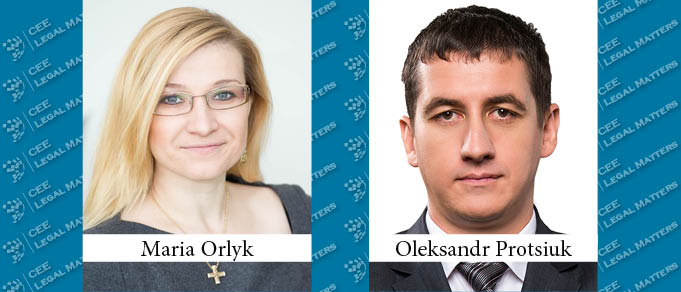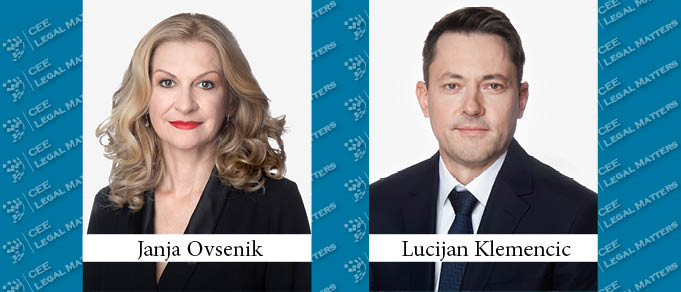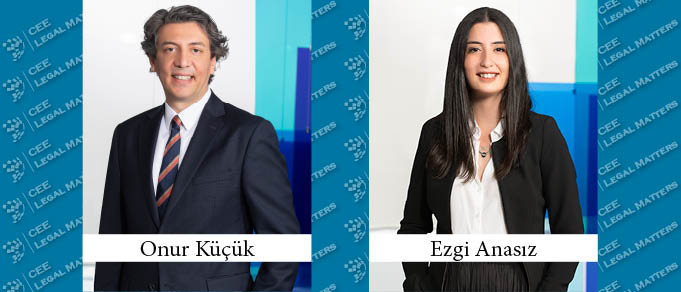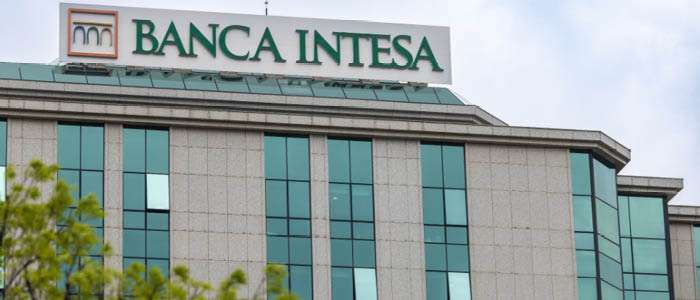In 2021, the President of Ukraine had signed two laws establishing a special legal and tax regime for the digital economy called Diia City. It has become effective from January 1, 2022, after the law shaping the taxation regime of Diia City has become effective.
The Convertible Loan Finally Arrives
The new changes of the Company law published on the 21st of April, 2022, introduce the “real” convertible loan institute for the limited liability companies in North Macedonia.
Recent Changes in Taxation during Martial Law
On April 5, 2022, the Law of Ukraine “On Amendments to the Tax Code of Ukraine and Other Legislative Acts of Ukraine on Improving Legislation for the Period of Martial Law” No. 2142-IX dated March 24, 2022 (“Law No. 2142”) came into force.
Judicial Crisis in Ukraine: Is There a Way Out?
An effective judiciary forms a cornerstone of a successful state that upholds the rule of law.
Top Trends in Ukrainian Antitrust Law Enforcement: 2022 Forecast
2021 was indeed an active year for the Antimonopoly Committee of Ukraine (AMCU). It seems that antitrust enforcement did not slow down during another pandemic year but even, in fact, accelerated. The agency closed a number of investigations, having imposed million-dollar fines on players from a variety of markets. Below you may find the top trends in Ukrainian antitrust enforcement. They are worth keeping an eye on, especially for companies having or planning a business presence in Ukraine.
Taxation of Founders’ Tokens in Slovenia
The Financial Administration of the Republic of Slovenia (Tax Authority) had already issued its first extensive guidelines regarding cryptocurrency taxation in 2017. According to the guidelines, capital gains generated from trading in virtual currencies by a natural person outside the scope of performing a business activity are not subject to personal income tax (PIT). Nevertheless, any income generated by a natural person as part of a business or entrepreneurial activity associated with cryptocurrencies is taxable.
Crypto Banks in Serbia - Myth or Reality?
Legal framework of the digital assets market.
Metaverse: What’s Law Got To Do With It?
Metaverse is not a product or a game. It was not created by a single company. Rather, it is a worldwide 3D network where companies, information and communication tools are comprehensive and interoperable. - Prof. Scott Galloway, University of New York
Electronic Signing of Documents in Serbia – Novelties in Signing of Financial Statements for Business Registers Agency
Starting from March 23, 2022, Serbian Business Registers Agency (“the SBRA”) has allowed the use of electronic signature in cloud in the Special Information System for drafting and submission of financial statements.
Romania: New Legal Framework for Foreign Direct Investments
Regulation (EU) 2019/452 of the European Parliament and of the Council of 19 March 2019 establishing a framework for screening foreign direct investments into the Union (the “Regulation”) has been implemented into Romanian legislation in the form of Government Emergency Ordinance no. 46/2022 on foreign direct investments (“GEO no. 46/2022”).
Ukraine: Taxes
On 07 March 2022 two vital laws regulating tax and reporting obligations during martial law in Ukraine became effective:
Poland: Occupational Burnout - Reason for Sick Leave?
It is widely accepted that, due to the increasing pace of today’s life and work, employees’ mental health is deteriorating. This problem has been compounded by the situation caused by the COVID-19 pandemic. Many workers complain of difficulty in adjusting to the new situation. For workers who have been (or are) permanently or periodically forced to work from home, personal issues are added to professional problems. This additional stress can be expected to increase the prevalence and intensity of professional burnout in employees.
Facial Recognition – Useful Invention or Ubiquitous Surveillance? What Does the EU Say?
One of developments in the artificial intelligence sphere which raised most concerns about potential human rights violations is definitely facial recognition.
Serbia: Tracking of Employees – Case Study
Electronic measurement of working hours based on processing of location data is permitted under data protection and labour regulations under the following conditions:
EU Asks Member States to End Investor Citizenship Schemes
In its recommendation issued at the end of March 2022, the European Commission urges Member States to immediately end their investor citizenship schemes and ensure strict controls to address the security, money laundering, tax evasion and corruption risks of investor residence programs.
Protecting Rights to Own Movable Property
The owner’s rights are guaranteed by the Constitution. However, a person can still be restricted or stripped of enjoying its title to the property if so provided by the statutory law passed by Verkhovna Rada. Mandatory transfer of property for the needs of defence or other public emergencies is called requisition and such transfer must be subject to prior and fair compensation, except “where extraordinary circumstances require otherwise”.
Important Amendments Regarding Copyright and Related Rights
Law No. 69/2022 amending and supplementing Law No. 8/1996 on copyright and related rights (“Law No. 69/2022”) was published in the Official Journal of Romania, Part I No. 321 of 1 April 2022 and, with the exception of a few provisions which will become applicable 30 days or 6 months after publication, entered into force on 4 April 2022.
Austrian Supreme Court On The Liability of a Bank-Auditor
In a recently published decision (OGH 4 Ob 145/21h) the Austrian Supreme Court ruled that an auditor who neglects due diligence and therefore issues an incorrect audit opinion shall be liable for damages to a third party who relies on the correctness of such an audit opinion and suffers damages resulting from such reliance.








































